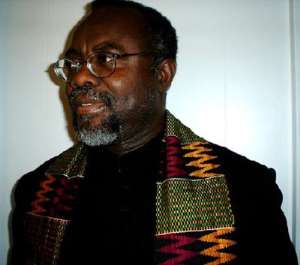
The decision by the newly elected Tanzanian president John Pombe Magufuli to skip this year’s independence anniversary festivities of his country ought to come as a sobering lesson, or teachable moment, for the pathologically profligate Mahama-led government of the National Democratic Congress (NDC) – (See Tanzania Scraps Independence Day Celebration” BBC/MyJoyOnline.com 11/25/15). President Magufuli’s rationale is that it would be wasteful and inexcusably unwise for Tanzania to be celebrating the reassertion of its sovereignty from British colonial rule amidst a blistering cholera epidemic that has hit East Africa’s twin-nation of the erstwhile Tanganyika and Zanzibar. Mr. Magufuli intends to re-channel funds that would have gone into the independence anniversary celebrations into the upgrading of his country’s public health facilities.
Now, compare the foregoing to Ghana’s profligate spending not only on March 6 – amidst the apocalyptic cholera epidemic that hit the country’s leading teachers’ academy, the University of Cape Coast, and several other teacher-training colleges and the nation at large, last year and the year before – but also the recent statutory establishment of President Nkrumah’s largely guesstimated birthday celebrations every September. But that the Tanzanian leader would enjoin his countrymen and women to use December 9 in the form of a housecleaning exercise is not, in of itself, uniquely innovative. To be certain, it is quaintly déjà-vu, and one that one wishes would have been better spent on the delivery of public lectures, workshops and media education programs on the civic responsibilities of progressive citizenship.
While undoubtedly commendable, nevertheless, Mr. Magufuli’s housecleaning exercise is not very inspiring, if also because it luridly recalls the “revolutionary” housecleaning exercises misguidedly launched by Ghana’s Flt.-Lt. Jerry John Rawlings in the late 1970s and early 1980s. The exercises were a massive failure because the extortionate regimes of both the Armed Forces Revolutionary Council (AFRC) and the Provisional National Defense Council (PNDC) did not have any deliberately thought out systematized agenda and/or program to sustain these exercises. The end result is that today Ghana ranks at the very bottom of the least environmental hygiene-oriented nations on the African continent. Indeed, a good friend of mine presently on a visit to Ghana – he is resident here in the United States – recently called me to bitterly report that the general upkeep of public/government buildings in the country is indescribably appalling and one that ought to be made a major electioneering campaign issue by the Akufo-Addo-led main opposition New Patriotic Party.
The friend who shall remain anonymous, at his own express request, is a Washington, DC-based resident who firmly believes that the movers-and-shakers of the New Patriotic Party are not framing their electioneering campaign issues in ways that could massively appeal to disgruntled eligible Ghanaian voters. I am also not the least bit impressed by the continuous domination of the Tanzanian political landscape and culture by the Nyerere-founded Chama Cha Mapinduzi (CCM) party in the entire 54-year postcolonial history of that country. I was also knowingly intrigued recently to read about a Nyerere political opponent from the early days of independence who suffered epic humiliation and died in exile in London, analogically in much the same way that President Nkrumah is widely known to have treated his sometime political mentor and the putative Doyen of Gold Coast and Modern Ghanaian Politics, Dr. J. B. Danquah.
Curiously, though, one ought to be honest enough to admit that the one-party domination of Tanzania’s political culture by the CCM appears to have worked far more effectively than what Ghanaians have in the so-called National Democratic Congress, obviously because Mwalimu Nyerere quite productively concentrated his creative energies and resources on the development of his country in ways that could not be said of the inordinately extroverted and megalomaniacal President Kwame Nkrumah. The latter’s vigorous championing of pan-Africanism, as laudable as it might have been was, nevertheless, no progressive substitute for his primary political and/or leaderships obligations to Ghanaian citizens. Charity, perforce, ought to have begun at home.
Then also, I don’t see President Magufuli’s alleged firing of the director of Tanzania’s foremost state-owned hospital, because patients had been found to be sleeping on the floor during a surprised visit, to be any particularly meaningful. Instead, Mr. Magufuli, who was also the Works and Housing Minister in the government of his predecessor, ought to be explaining to his countrymen and women precisely why he clearly appears to have done a diddly little to remarkably facilitate the expansion of the country’s central hospital. The move well appears to have been purely political, perhaps even a personal vendetta, and one that was more aimed at asserting his raw power and authority than effectively remedying an admittedly appalling situation.
By Kwame Okoampa-Ahoofe, Jr., Ph.D.
Garden City, New York
Nov. 24, 2015
E-mail: [email protected]




 Saglemi Housing Project will not be left to rot – Kojo Oppong Nkrumah
Saglemi Housing Project will not be left to rot – Kojo Oppong Nkrumah
 Transport fares hike: GPRTU issue two-day ultimatum
Transport fares hike: GPRTU issue two-day ultimatum
 ARC endorses Alan as presidential candidate – Buaben Asamoa
ARC endorses Alan as presidential candidate – Buaben Asamoa
 Akufo-Addo appoints Kwasi Agyei as new Controller and Accountant-General
Akufo-Addo appoints Kwasi Agyei as new Controller and Accountant-General
 PNC dismiss reports of mass resignations
PNC dismiss reports of mass resignations
 PAC advocates for revenue collectors to be engaged on commission basis, not full...
PAC advocates for revenue collectors to be engaged on commission basis, not full...
 Genser Energy commissions 110km of natural gas pipeline at Anwomaso
Genser Energy commissions 110km of natural gas pipeline at Anwomaso
 Naa Torshie calls for tolerance, peace ahead of 2024 election
Naa Torshie calls for tolerance, peace ahead of 2024 election
 Asantehene commends Matthew Opoku Prempeh for conceiving GENSER Kumasi Pipeline ...
Asantehene commends Matthew Opoku Prempeh for conceiving GENSER Kumasi Pipeline ...
 Let’s do away with ‘slash and burn politics’ in Ghana — Dr Adutwum
Let’s do away with ‘slash and burn politics’ in Ghana — Dr Adutwum
